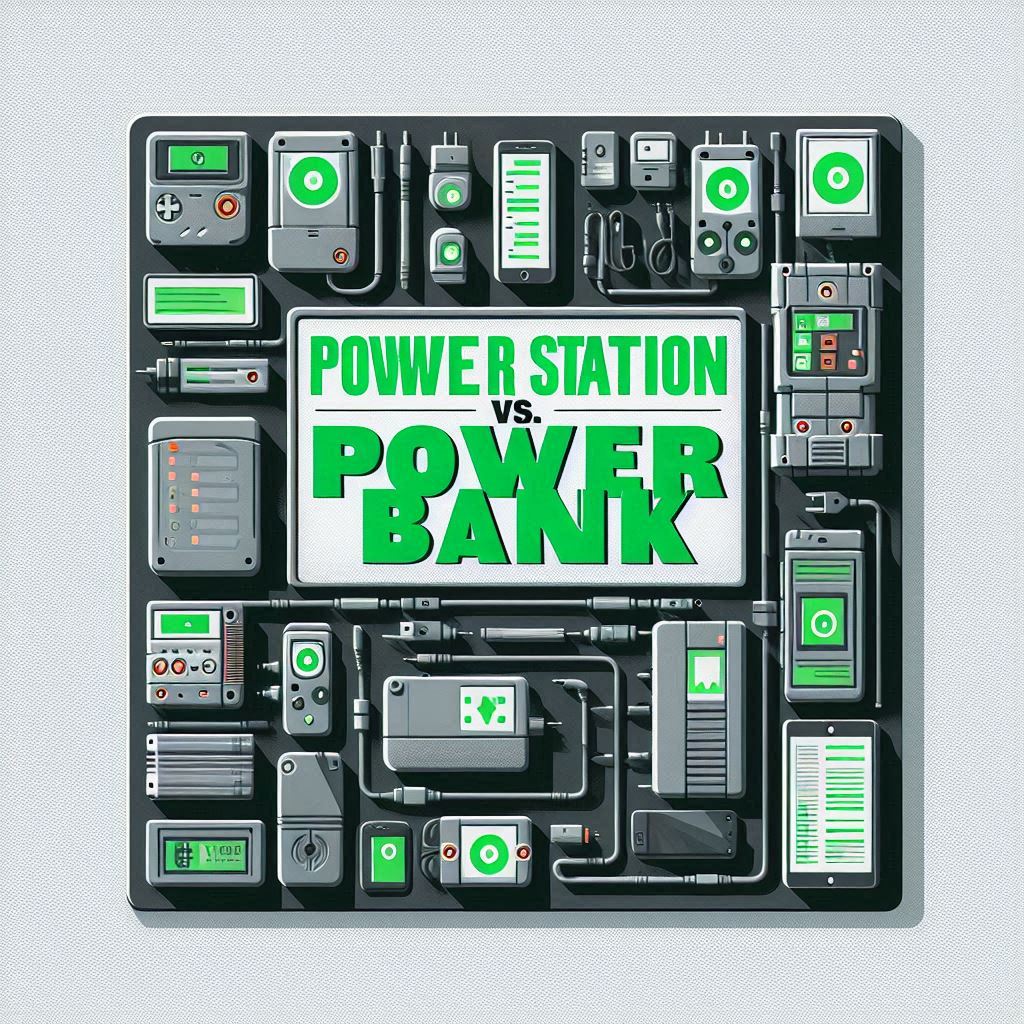
Power Bank vs. Power Station
Share
Power Banks vs Power Stations: Understanding the Difference for Your Backup Needs
When it comes to portable power backup solutions, two popular options are power banks and power stations. While both serve the same purpose, they cater to different needs and offer varying levels of compatibility and efficiency. In this blog post, we'll delve into the key differences between power banks and power stations to help you choose the right solution for your backup requirements.
Power Banks: Efficient DC Power Backup
Power banks are designed to provide DC power backup for devices that use USB-A, USB-C, or DC barrel connectors. They are ideal for charging phones, tablets, and other portable devices. However, they typically cannot charge devices with unique output voltage or connectors. These devices require AC power.
Energy Intelligence's Universal DC Power Bank is a great example of a power bank that can charge USB-A, USB-C, and DC barrel laptops efficiently, minimizing energy loss.
Power banks are often preferred for their portability and ease of use. They usually come with multiple USB ports, allowing you to charge multiple devices at once.
Additionally, they are energy-efficient, as they directly provide DC power to devices without the need for DC to to AC conversion, which can result in energy loss. For instance, the Energy Intelligence Universal DC Power Bank has a high energy efficiency of over 85%, ensuring that most of the stored energy is utilized to charge your compatible devices.
Power Stations: AC Power for a Wide Range of Devices
Power stations, on the other hand, offer AC power output, making them suitable for devices that require AC adapters or run direct on AC (Like fans). They are perfect for running AC devices, such as laptops, desktops, small refrigerator, TV and other appliances.
Energy Intelligence's Power Station Shakti Series 200 is a versatile option that provides both DC and AC outputs, allowing you to power devices that use either type of connector. Power stations are designed to provide backup power for a wide range of devices, including those that require AC power.
They are often larger and more powerful than power banks, making them suitable for backup power needs in homes, offices, or travel. Energy Intelligence's Power Station Shakti Series 200, for instance, has a high capacity of 192Ah and can provide up to 200W of continuous power, making it suitable for powering multiple devices simultaneously.
Choosing the Right Solution
So, how do you decide between a power bank and a power station? If you have devices that use USB-A, USB-C, or DC barrel connectors, a power bank like Energy Intelligence's Universal DC Power Bank is a great choice. It is energy-efficient and meets your specific needs.
However, if your workload requires AC power and your devices are not compatible with standard DC connectors, a power station like Energy Intelligence's Power Station Shakti Series 200 is a better option. This power station provides the best of both worlds, offering both DC and AC outputs, ensuring you can power any device that requires either type of power.
Key Considerations
When choosing between a power bank and a power station, consider the following key factors:- Device Compatibility: If your devices use USB-A, USB-C, or DC barrel connectors, a power bank is a good choice. If your devices require AC power, a power station is more suitable.
- Power Requirements: If your devices require high power output, a power station is a better option. Power banks typically have lower power output ratings.
- Portability: Power banks are designed to be portable and easy to carry, making them ideal for on-the-go backup power needs. Power stations are often larger and heavier, making them more suitable for fixed backup power needs. But many power stations are portable. Many power stations may not be carried in airlines.
- Energy Efficiency: Power banks are generally more energy-efficient than power stations, as they directly provide DC power to devices without the need for conversion.


